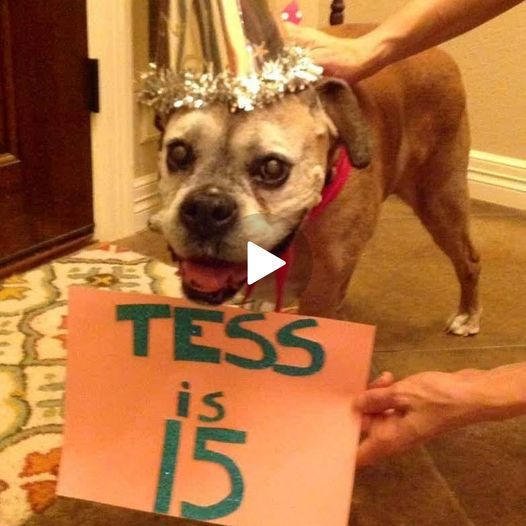Happy 15th birthday! 🎉🎂🥳 Today marks a special occasion filled with love, happiness, and memorable moments to treasure. Birthdays remind us of your unique qualities as an individual and the exciting opportunities that lie ahead. May your day shine as brightly as your kind heart, and may the coming year bring you joy, success, and all the love you richly deserve. Remember to savor each moment, as your presence spreads joy to those around you. Enjoy an incredible day and make it truly special! 🎈❤️🌟
Extend birthday greetings to the dog as well! 🎂
Here are some essential tips for caring for dogs:
Age-Specific Nutrition: As dogs grow older, their dietary needs change. Senior dogs might need food that is lower in calories and higher in fiber to accommodate their aging bodies. Always consult your veterinarian to make sure your senior dog’s diet fits their specific requirements.
Avoid Table Scraps: It’s tempting to share your meal with your dog, but regular feeding of human food can be harmful. Human food doesn’t meet the nutritional needs of dogs and may lead to weight gain and digestive problems.
Raw Food Diets: Some owners believe raw diets are healthier for dogs, but these diets can be risky due to possible bacterial contamination and nutritional deficiencies. If you’re considering a raw diet, talk to your vet about the potential pros and cons.
Special Diets for Health Conditions: Dogs with conditions like diabetes, kidney disease, or allergies may need special diets. Collaborate with your vet to create a diet plan that addresses your dog’s specific health needs.
Home-Cooked Meals: Cooking for your dog is an option, but it requires careful planning to ensure it’s nutritionally complete. Consulting with a veterinary nutritionist is crucial to develop balanced meals and prevent nutritional gaps.
Food Safety: Proper handling and storage of your dog’s food are vital to prevent contamination and spoilage. Regularly clean food and water bowls, store dry food in a cool, dry place, and promptly discard any food that’s expired or moldy.
Reading Food Labels: When choosing dog food, always read the labels to know what you’re feeding your dog. Opt for high-quality ingredients and avoid foods with fillers, by-products, and artificial additives.
Grain-Free Diets: Grain-free diets are popular but not always necessary or suitable for every dog. Consult your veterinarian to see if a grain-free diet is right for your dog, particularly with recent concerns about its connection to heart disease.
Hydrolyzed Protein Diets: For dogs with allergies or sensitivities, hydrolyzed protein diets, which break down proteins into smaller parts, can prevent allergic reactions.
Weight Management: Keeping your dog at a healthy weight is essential for their health and longevity. If your dog is overweight, work with your vet to develop a plan that includes proper diet and increased exercise.



